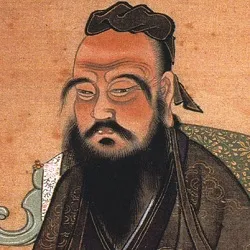- RESEARCHDistance Learning at AIU is enhanced by vast academic resources and innovative technologies build into the Virtual Campus: Hundreds of self-paced courses with video lectures and step by step lessons, thousands of optional assignments, 140,000 e-books, the Social Media & Networking platform allowing collaboration/chat/communications between students, and MYAIU develop students holistically in 11 areas beyond just academics.
- PROGRAMS OFFERED
- Areas of Study
- Courses and Curriculum
- Open Courses
- Register for a Program
- Associate Program
- Associate in Addiction Counseling
- Associate in Agriculture Food And Resources
- Associate in Anti Terrorism Security
- Associate in Behavior Analysis In Special Education
- Associate in Bioethics
- Associate in Climatology
- Associate in Cultural Theological Communication
- Associate in Culinary Arts
- Associate in Ecotechnology
- View all Associates Programs
- Bachelor Program
- Bachelors in Community Development
- Bachelors in Environmental Science
- Bachelor in Education (B.Ed, BS)
- Bachelors in Economics
- Bachelors in Entrepreneurship
- Bachelors in Financial Administration
- Bachelors in Human Resource Management
- Bachelors in Linguistics
- Bachelors in Nutritional Science
- Bachelors in Occupational Health and Safety
- Bachelors in Psychology
- View all Bachelor Programs
- Doctorate Program
- Doctor | of Biology (PhD)
- Doctorate in Business Administration (DBA, PhD)
- Doctor of Economics (PhD)
- Doctor of Electrical Engineering (D.Sc, PhD)
- Doctor of Finance (PhD)
- Doctorate in International Relations
- Doctorate in Information Technology (D.Sc)
- Doctor of Legal Studies (PhD)
- Doctor of Project Management (PhD)
- Doctor of Sociology (PhD, D.Sc)
- Doctorate in Sustainable Natural Resources Management
- View all Doctorate Programs
- Master Program
- Postdoctoral Program
- Postdoctoral in Animal Science
- Postdoctoral in Anti Terrorism Security
- Postdoctoral in Behavior Analysis In Special Education
- Postdoctoral in Bioethics
- Postdoctoral in Blockchain Technology and Digital Currency
- Postdoctoral in Business Management
- Postdoctoral in Cloud Computing
- Postdoctoral in Computer Engineering
- View all Postdoctoral Programs
AIU offers a wide range of majors in areas including the Arts, Business, Science, Technology, Social, and Human studies. More than 120 degrees and programs are available for adult learners at the associate’s, bachelor’s, master’s, doctoral and postdoctoral level. - VIRTUAL CAMPUS
Distance Learning at AIU is enhanced by vast academic resources and innovative technologies build into the Virtual Campus: Hundreds of self-paced courses with video lectures and step by step lessons, thousands of optional assignments, 140,000 e-books, the Social Media & Networking platform allowing collaboration/chat/communications between students, and MYAIU develop students holistically in 11 areas beyond just academics.
- ALUMNI
The world is YOUR campus!”, that is the message of AIU’s month magazine Campus Mundi. Hear the voices and see the faces that make up AIU. Campus Mundi brings the world of AIU to you every months with inspirational stories, news and achievements by AIU members from around the world (students and staff are located in over 200 countries).
Ethics in Public Administration
Understanding the Dynamics of War and Its Impact on Global Politics
This publication delves into the complex interplay between war and world politics, examining historical conflicts, their societal impacts, and theoretical frameworks in international relations. It highlights the enduring nature of warfare and its consequences.
Click Here: Register Today to Become an International Relations Expert and enhance your knowledge in this vital field!

The publication provides an in-depth analysis of the relationship between war and world politics, emphasizing the historical and ongoing significance of warfare in shaping human societies. It begins by acknowledging that wars have been among the most devastating tragedies throughout history, causing immense suffering, loss of life, and destruction of property. The text posits that war is an intrinsic aspect of human nature, suggesting that all civilizations, regardless of their classification as “civilized” or “barbaric,” have experienced conflict.
The document discusses the evolution of warfare, noting that while the methods and contexts of war may change, the fundamental human inclination towards conflict remains constant. It highlights the impact of major global conflicts, particularly the World Wars, which involved multiple states and alliances, reshaping the international order and affecting vast populations. The publication also addresses the Cold War era, where ideological divisions led to numerous proxy wars and conflicts in the Global South, influenced by the superpower rivalry between the United States and the Soviet Union.
A significant portion of the text is dedicated to exploring the costs of war, which extend beyond immediate human casualties. It examines the economic, political, psychological, and ecological repercussions of warfare, emphasizing how conflicts disrupt social structures and political orders, leading to long-term instability and challenges for post-war recovery. The publication also highlights the role of nationalism in driving conflicts, illustrating how nationalistic sentiments can mobilize populations and leaders towards war, while also serving as a catalyst for unity and identity.
Theoretical frameworks in international relations, particularly realism and liberalism, are discussed to provide context for understanding the motivations behind wars. Realism views the international system as anarchic, with states acting in their self-interest, often leading to conflict. In contrast, liberalism emphasizes cooperation and the potential for peace through international institutions and norms.
The publication concludes by synthesizing various themes related to war and politics, including strategic considerations in military engagements and the importance of understanding the historical context of conflicts. It underscores the need for a comprehensive approach to studying war, recognizing its multifaceted nature and the profound impact it has on global politics and human security.
Overall, the document serves as a critical resource for understanding the dynamics of war, its implications for international relations, and the ongoing challenges posed by conflicts in the modern world. It encourages readers to reflect on the lessons of history and the importance of addressing the root causes of war to foster a more peaceful international order.
Atlantic International University
Get to know the AIU experience
Contact Us Today!
We understand how busy adults do not have time to go back to school. Now, it’s possible to earn your degree in the comfort of your own home and still have time for yourself and your family. The Admissions office is here to help you, for additional information or to see if you qualify for admissions please contact us. If you are ready to apply please submit your Online Application and paste your resume and any additional comments/questions in the area provided.
Pioneer Plaza
900 Fort Street Mall 905
Honolulu, HI 96813
800-993-0066 (Toll Free in US)
808-924-9567 (Internationally)
808-947-2488 (Fax)
AIU Success Stories







Contact Us Today!
Begin Your Journey!
AIU’s Summer of Innovation and Growth gives you the ability to earn up to $5000 in tuition credit by completing free lessons and courses.
Whether you’re looking to acquire new skills, advance your career, or simply explore new interests, AIU is your gateway to a world of opportunities. With free access to 3400 lessons and hundreds of courses the ability to earn credits and earn certificates there’s no better time to start learning.
Join us today as a Guest Student and take the first step towards a brighter, more empowered future.
Explore. Learn. Achieve.
Degrees

Contact Us
Atlantic International University
900 Fort Street Mall 905 Honolulu, HI 96813 info@aiu.edu
Quick Links
Home | Online Courses | Available Courses | Virtual Campus | Career Center | Available Positions | Ask Career Coach | The Job Interview | Resume Writing | Accreditation | Areas of Study | Bachelor Degree Programs | Masters Degree Programs | Doctoral Degree Programs | Course & Curriculum | Human Rights | Online Library | Representations | Student Publication | Sponsors | General Information | Mission & Vision | School of Business and Economics | School of Science and Engineering | School of Social and Human Studies | Media Center | Admission Requirements | Apply Online | Tuition | Faculty & Staff | Distance Learning Overview | Student Testimonials | AIU Blogs | Register for Program | Privacy Policy | FAQ



















